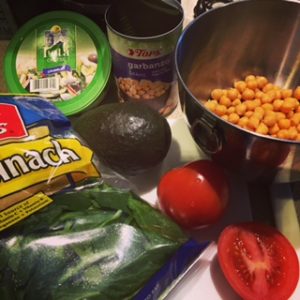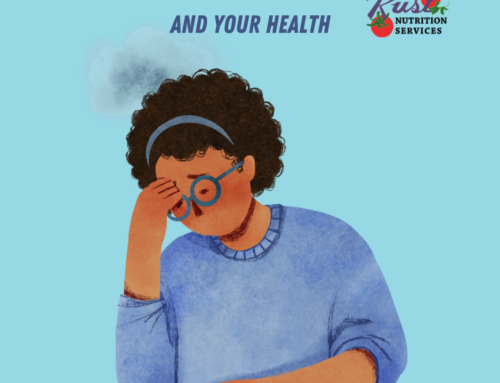
Bean Salad Ingredients
It’s been a big year in food and nutrition news, and it’s only mid-January.
On December 29 (technically last year) PBS aired Michael Pollan’s In Defense of Food documentary. Then on January 7th, the 2015-2020 Dietary Guidelines for Americans were released. And a few days later US News and World Report published their annual best diet review.
When it comes to dietary advice, sometimes it seems like information overload.
In two weeks time, you’ve heard:
- Pollan offering his “Nutritionism” theory (a term that suggests the food science industry has over-focused on the nutrients in food) and food rules
- The news releases of the Dietary Guidelines for Americans, (that seem vague but not much different than before)
- And US News reporting their review on diets, concluding that the three best overall diets to follow are DASH, TLC, or MIND. Confused?
Nutrition and Health Are Closely Related
What you eat does have some impact on your health. Your diet supports your body weight and your risk of disease. Being overweight in itself is a risk factor for both diabetes and heart disease, and possibly even some cancers.
But the fact will always remain that there is no one way that every human should eat. And, there are things that we can’t control (genetics, age, gender, and sometimes even stress).
The fact that it’s important to include plants in your diet (vegetables and fruits, nuts, seeds, grains) doesn’t mean that you can’t find a healthy balance by also including animal-based products (meats, poultry, fish, cheese, dairy). In fact the DASH research showed that while blood pressure was reduced with a high intake of fruits and vegetables, it was lowered even more when lowfat milk was included. And small portions of low fat meats, poultry and fish are part of the DASH plan.
So what should you eat?
What you decide to include in your diet is up to you.
My theory is that you should choose food you enjoy, and since there is clearly a strong correlation between diet and health, you should try your best to eat a variety of foods. Start to think about food as medicine (particularly plant foods – including healthier choices in your diet, and investing some time in exercise, is definitely less expensive than prescription medicines!).
It’s up to you to decide to make healthier choices, reduce your portion sizes, eat out less, and add more vegetables and fruits to your diet.
The bottom line with establishing healthy eating habits, is behavior. In order to eat better, you have to be willing to take some time to change your behavior. Here are some ideas for getting started:
- Try something new. Sometimes what you eat has as much to do with your routine, environment, and schedule, as it does the actual food. We can get stuck in ruts, that perhaps sabotage our eating habits. Try to change your schedule around, and see if this helps curb snack attacks, or portion sizes.
- Exercise. Adding a new exercise routine can help change up your schedule and offers you the positive benefits of building strength. Try signing up for a class right after work – the workout will be a great stress buster, and may help suppress your appetite, helping you eat less at dinner.
- More vegetables, nuts and seeds. These can be easier to add to your diet than you think. It’s about changing old ways. If you are used to grabbing a creamy macaroni salad from the deli, consider making a batch of something new (like my bean salad). If you have it ready, you can grab it as a dinner side dish, or pack it for lunch.
- Give it a week to ten days. For instance, if you have a sweet tooth, it will be difficult to avoid your typical sweet choices at first. Give it a week, you’ll have to work at choosing another food or beverage instead to replace the sweet (sliced apples perhaps, or a cup of tea with a touch of honey), but after a week, you’ll find it gets easier. And you don’t have to eliminate your favorite sweet – just cut back for a while to establish new, healthier choices first.
- Get proper sleep. Most people need 7-8 hours a night. Eating poorly can interfere with a good nights sleep, and chronic sleep deprivation can make if more difficult to make reasonable food and beverage choices. Exercise also can greatly improve your sleep quality.




